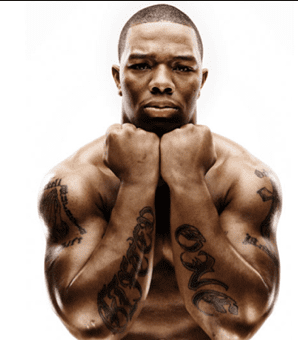President Barack Obama issued a proclamation today recognizing the 20th anniversary of the Violence Against Women Act and calling “upon men and women of all ages, communities, organizations and all levels of government to work in collaboration to end violence against women.”
The proclamation comes a day after TMZ.com released video footage of Baltimore Ravens running back Ray Rice knocking his then-girlfriend/now-wife Janay Palmer out cold in an elevator — video footage that prompted the Ravens to terminate Rice’s and prompted the NFL to suspend him indefinitely. That sounds reasonable, except that the incident back in March and in July NFL Commissioner Roger Goodell only suspended Rice for two games. (Rice was originally charged with felony assault but the charges were dropped when Palmer refused to testify against him.)
Originally, the only video footage made public showed the moments after the elevator doors opened and Rice dragged the unconscious Palmer part of the way out of the elevator and then left her laying in a heap on the floor. The video released this week by TMZ, taken by a camera inside the elevator, shows the brutal punch to the face that knocked her out.
As President Obama said in his proclamation today, it was 20 years ago that “our nation came together to declare our commitment to end violence against women.” The VAWA “created a vital network of services for victims,” expanded the number of shelters and rape crisis centers across the country, and established a national hotline, the proclamation says. The VAWA also “imrpoved our criminal justice system and provided specialized training to law enforcement … . It spurred new state laws and protections and changed the way people think about domestic abuse … .”
But watching that video of Ray Rice punching Janay Palmer and considering the NFL’s initial lackluster response, it doesn’t seem like we’ve made much progress toward that goal.
Add in some statistical information, and it’s even more discouraging.
According to UNWomen.org, the website for the United Nations Entity for Gender Equality and the Empowerment of Women, a global review of available data conducted in 2013 (World Health Organization, Global and Regional Estimates of Violence against Women) shows that 35 per cent of women worldwide have experienced either physical and/or sexual intimate partner violence or non-partner sexual violence . But some national studies show that up to 70 percent of women have experience sexual or physical violence from an intimate partner.
The UNWomen website goes on to cite The World Health Organization’s World Report on Violence and Health, which says that in Australia, Canada, Israel, South Africa and the United States, intimate partner violence accounts for between 40 and 70 per cent of female murder victims.
President Obama says that he was “proud to renew our pledge to our mothers and daughters by reauthorizing VAWA and extending its protections” last year. And while the VAWA has “provided hope, safety and a new chance at life for women and children across our nation,” the president acknowledges “we still have more work to do.”
“Too many women continue to live in fear in their own homes, too many victims still know the pain of abuse, and too many families have had to mourn the loss of their loved ones. It has to end — because even one is too many.”
Absolutely. But in the LGBT community we have to take it a step forward and remember that women are not the only victims of domestic violence, and men are not the only abusers.
According to a “fact sheet” published online by the Center for American Progress, 1 out of 4 to 1 out of 3 same-sex relationships has experienced domestic violence. And domestic abuse violence victims in same-sex relationships face threats that their abuser will “out” them at work or to family, some face the threat of having their children taken away, and some are even afraid of doing damage to the LGBT rights movement by admitting that domestic violence happens in our community.
These and other reasons make LGBT domestic violence victims more reluctant to report such violence to police, and leaves them feeling isolated, alone and helpless.
President Obama is right. We’ve got a long way to go. We in the LGBT community have to make sure we are part of the effort against domestic violence, not just in the country as a whole, but in our own community — our own homes — too.
















